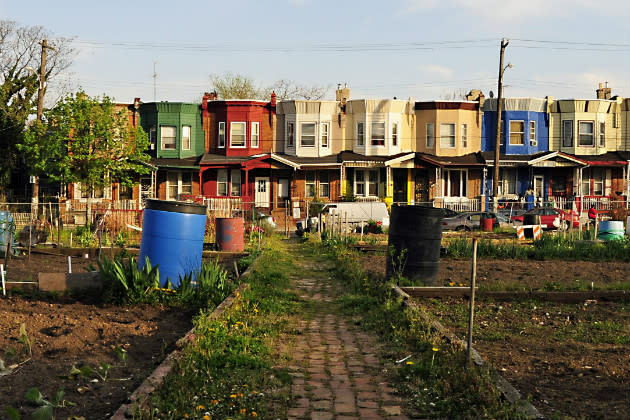 The Lookout
The LookoutGreening vacant lots may reduce violent crime, new study suggests

Greening vacant lots in urban areas may do more than help beautify the concrete jungle—it may actually reduce crime.
According to a new study from the Perelman School of Medicine at the University of Pennsylvania, residents who live near urban gardens say they feel safer. And according to the study, published this week in the journal Injury Prevention, there is some evidence that greening vacant lots "is associated with reductions in violent crime."
Vacant lots are "often overgrown with unwanted vegetation and filled with trash," making them "attractive places to hide illegal guns, conduct illegal activities such as drug sales and prostitution, and engage in violent crime," the study says.
Researchers compared police reported crime between a cluster of "greened" lots in Philadelphia and nongreened ones over a six-month period, and found there was a small decrease in the number of total crimes and gun assaults around lots that had been "greened."
"Vacant lot greening changes the physical environment of a neighborhood from one that may promote crime and fear to one that may reduce crime and make people feel safer," Eugenia C. Garvin, lead author of the study, told Science Daily.
But more research is needed, Garvin said, to study the link between vacant lot greening and the reduction in crime.
A 2011 "quasi-experimental"—also conducted by the University of Pennsylvania—compared thousands of greened and nongreened vacant lots and found "significant before-and-after reductions in gun assaults around vacant lots that were greened," Science Daily said.
"All the more reason to turn the nation's vacant lots into urban gardens," Sara Novak wrote on Treehugger.com.
Urban gardens are growing. According to GrowNYC, there are more than 500 active community gardens in New York City.
